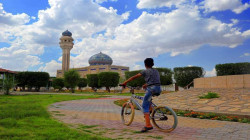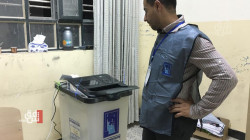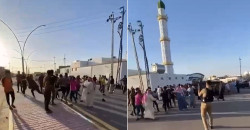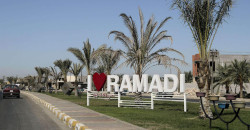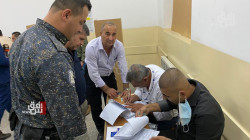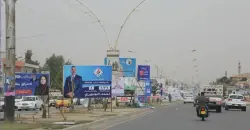"Exploiting pain": The electoral race begins early in Al-Anbar
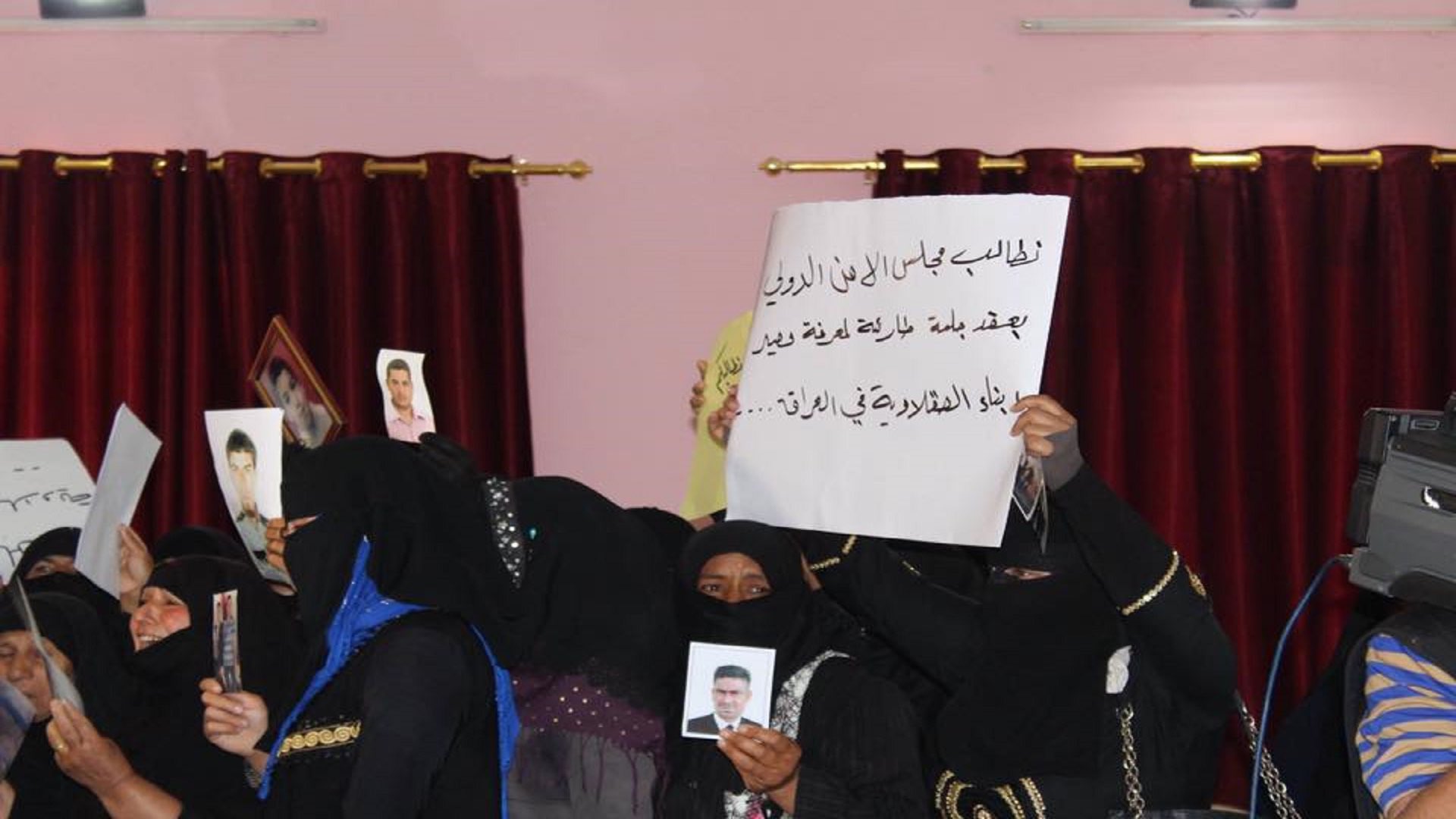
Shafaq News / The families and relatives of the forcibly disappeared in Al-Anbar are eager for any information or news regarding the fate or whereabouts of their lost ones who went missing years ago without a trace.
Still seeking any silver lining, the disappeared's relatives are again looking forward to electoral promises to reveal their lost ones' fate. In time, the candidates, deputies, and politicians from Sunni blocs began to make early promises during visits that began nearly three weeks ago to cities and towns in Al-Anbar governorate.
Those promises are the same as those made by political blocs in the 2018 elections, none of which has been fulfilled. Such void promises are now viewed as exploitation of people's pain.
The cities of Al-Bu Shajel and Al-Bu Akash in Saqlawiyah, north of Fallujah, Qa'im, Rutba, west of Al-Anbar, Sajjariya, east of Ramadi, Ameria and Karma, south and east of Fallujah, have witnessed multiple visits by representatives of political blocs and candidates, some of whom were accompanied by clerics and tribal elders.
The visitors made a variety of promises, including their intention to demand the government of Mustafa Al-Kadhimi, Al-Fatah Coalition leaders, and prominent armed factions in the Al-Hashd Al-Shaabi to determine the fate of the forcibly disappeared.
"Exploitation and electoral conflict"
"An immoral and inhuman exploitation is taking place in the governorate by politicians as part of their struggle to gain votes, including the file of the forcibly disappeared due to their large number that made them nothing but an electoral weight," said a prominent human rights activist in Al-Anbar.
The activist added that the Electoral Commission is called upon to move towards what he described as a "farce" and called on the Al-Kadhimi's government to, "Be brave and reveal the information it has about the fate of thousands of kidnapped victims and not to leave the case open to political blackmail with people's feelings, emotions, and eagerness to find their lost ones."
For his part, Mohsen Ammar, a citizen who lives in Saqlawia district in western Al-Anbar, said, "During the elections of the previous parliamentary session's days, candidates were coming to us from everywhere with promises to reveal the fate of our lost children. After we trusted them and voted for them, we only saw them on television."
"The four years they sat on the parliamentary chairs after exploiting our pains are over. We will not allow them to bluff again, and we will not elect any of them," added Ammar, who is a brother to two of the forcibly disappeared.
"We are tired of promises"
As for Dhiyaa Waleed, he wondered, "What do they think? when they visit us and make the same promises that we have heard before, we will trust them?"
"Shame on me and every father, brother, mother, or wife of a forcibly disappeared or detained in secret prisons to get to the polls. We will not elect those who turned a blind eye to our suffering," said Waleed, a resident of Al-Fallujah district in eastern Al-Anbar and the father of one of the missing.
Dhiyaa's wife, Aliaa' Sadiq, interrupted him, saying, "In the last elections, we voted for those who promised to reveal the fate of my son and the rest. Where are their promises? Can one of them tell us what he has fulfilled so far?"
Hamed Al-Mutlaq, a former Iraqi MP, said, "The forcibly disappeareds' file is a humanitarian, national and moral issue at the same time. It should not be used in an extortionary, material, or other purposes such as elections, and it is shameful that humanitarian and moral issues are used in this way."
Speaking to Shafaq News agency, Al-Mutlaq said that exploiting the file of the forcibly disappeared in the elections is not new, "It is not strange for some political forces as some parties are treating national issues with an extortionary manner."
"We were hoping that the parties that are now using the file of the forcibly disappeared, the abducted, and the oppressed, to have it permanently in their electoral programs and not only for electoral interests because those disappeared have families waiting for them. It is essential that there be organizations to follow their fate and try to obtain the rights of their families," Al-Mutlaq added.
And whether the members of the current parliament have kept their promises to follow up on this file or not, he commented, "They never did. They completely forgot the file and some even denied it."
"I do not want to generalize, some of them have kept their promises, but the majority, who have been enriched by the issues of the forcibly disappeared, have forgotten their promises after winning the elections, whether legitimately or not," Al-Mutlaq concluded.
Nahla Al-Rawi, a member of the Iraqi parliament's Labour and Social Affairs Committee, refrained from speaking about the issue, saying, "I have guests, and I am busy, call me later."
After our repeated the question, "As their representatives in the Iraqi parliament, citizens are asking you to elaborate about your efforts to reveal the fate of their lost children?" Al-Rawi said, "Excuse me, I am busy."
